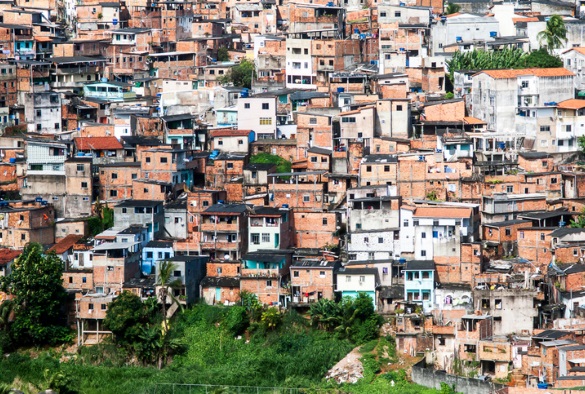Why is leptospirosis hard to avoid for the impoverished?

A recent article co-authored by IVES’ Professor Mike Begon looks at what drives the transmission of leptospirosis in Brazilian favelas.
Leptospirosis is a globally-distributed and neglected disease that disproportionately affects vulnerable urban residents in low-income communities. But determining who, exactly, becomes infected is complicated, involving a complex web of demographic, socioeconomic, and environmental factors combined with the individual knowledge, attitudes, and practices (KAP) of people in the community.
Published in PLOS Global Public Health, the findings in the article have implications for a wide range of studies, including those on the demography of COVID-19 infection.
For this study, researchers carried out a cross-sectional survey to enable the deconstruction of leptospirosis transmission risk and the drivers of KAP in a disadvantaged urban community in Salvador, Brazil.
Professor Begon said: “The importance of determining the demographic profile of those impacted by infectious diseases has been highlighted by recent experiences with COVID; but identifying the causes - genetic, economic, cultural etc - of increased risk in the most afflicted subgroups is problematic and often controversial.
“In this article we take a novel approach to addressing this problem for leptospirosis risk in our Brazilian study system. We demonstrate how such complex webs of influence, incorporating socioeconomic and environmental risk factors, and residents' knowledge, attitudes and practices, can be disentangled, for this and for other infections.”
The study is part of a Medical Research Council-funded project led by Professor Begon with colleagues from Brazil, USA and Sweden aimed at understanding and controlling leptospirosis in Brazilian slums. Adopting a highly interdisciplinary approach, the team is working to facilitate the design of innovative, sustainable and scalable interventions to reduce disease and improve the health and life prospects of people in disadvantaged urban communities across Brazil and elsewhere in the world.
Research reference:
Palma FAG, et al. (2022) Why is leptospirosis hard to avoid for the impoverished? Deconstructing leptospirosis transmission risk and the drivers of knowledge, attitudes, and practices in a disadvantaged community in Salvador, Brazil. PLOS Global Public Health 2(12): e0000408. https://doi.org/10.1371/journal.pgph.0000408